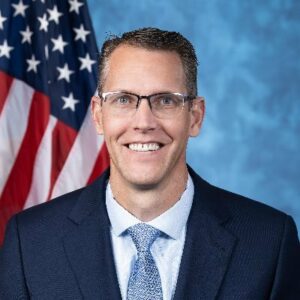
Rep. Randy Feenstra
U.S. Rep. Randy Feenstra (R-IA) on May 6 proposed two separate healthcare-related bills that aim to support patients living in America’s rural areas.
“As a member of the House Ways and Means Committee, I will continue to advocate for policies that keep our rural hospitals strong and our families healthy,” said Rep. Feenstra on Tuesday.
The Rural Hospital Stabilization Act, H.R. 8245, which Rep. Feenstra sponsored on May 6, would establish the Rural Hospital Stabilization Pilot Program to provide grants to rural hospitals for purposes of ensuring local access to services, according to the congressional record bill summary.
The pilot program would be authorized through 2029 to help struggling hospitals, especially those in the most rural areas, improve financial stability and allow them to retain healthcare services and increase service capacity.
Additionally, Rep. Feenstra on April 29 sponsored the Audio-Only Telehealth Access Act, H.R. 8148, which would make Medicare’s coverage of audio-only telehealth services permanent.
The current Medicare waiver that’s set to expire on Dec. 31, allows the Centers for Medicare and Medicaid Services to reimburse providers for patient evaluation, patient management, and behavioral health services over the phone, according to a bill summary provided by the congressman’s office.
“On my 36 County Tour, I’ve met with healthcare workers and families about the importance of keeping hospitals open and operational in our rural communities and maintaining access to high-quality, dependable care for our seniors,” said Rep. Feenstra. “Taking my conversations back to Congress, I introduced two pieces of legislation that would provide grants to our local hospitals to continue delivering care and allow Medicare to permanently cover telehealth services conducted over the phone.
“These bills are particularly vital for our seniors who shouldn’t have to travel hundreds of miles to receive routine care, for those who lack reliable broadband, and for our rural communities who desperately need access to hospitals and basic healthcare services,” he added.



